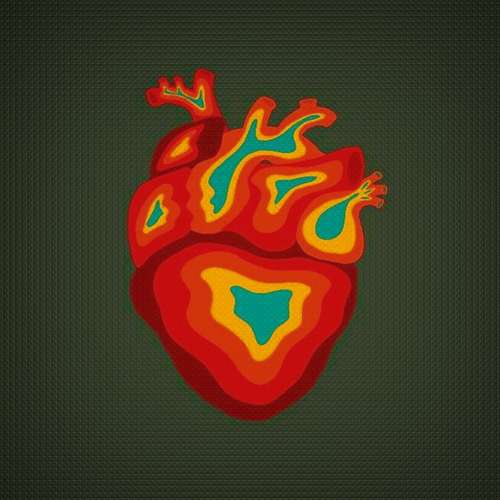Extreme heat isn’t just about sweating buckets or feeling uncomfortable—it can really mess with your heart. When temperatures soar, our bodies scramble to keep cool, which can put unexpected strain on our cardiovascular system. In a way, it's like trying to run a marathon in a sauna; you eventually feel the pressure and fatigue, sometimes even overwhelmed by the heat.
You might have noticed that on some summer days, people seem more sluggish, and the pace of life slows down. But it's not just laziness—it’s the body's natural response to high temperatures. Our systems adapt by dilating blood vessels, a process called peripheral vasodilation, and this can lead to a drop in blood pressure even as the heart starts racing to compensate.
Understanding How Extreme Heat Affects Your Heart Function
The first section sets the stage by exploring how extreme heat interacts with heart function. It’s important to understand that while our hearts are built strong, they face a tough challenge under the intense condition of a heatwave.
When the mercury rises, the body reacts by expanding the blood vessels to help disperse excess heat. This process, known as peripheral vasodilation, makes it easier for warm blood to move to the skin where it can cool off. However, this also means that the overall blood pressure can drop. The heart then kicks into overdrive by increasing its rate to maintain adequate emotional and physical activity—a phenomenon that many people might refer to as a racing heart.
The relationship between peripheral vasodilation and heart function is fascinating. Imagine trying to drive a car with the accelerator pressed down because the engine is overheating—your cardiovascular system has to work overtime to prevent damage. Some experts suggest that moderate increases in heart rate can be a normal response, but for those with preexisting heart conditions, such stress might have more dire consequences.
This isn’t a problem exclusive to the elderly or those with heart disease. Even young, healthy individuals can experience discomfort and shortness of breath during prolonged periods of extreme heat. It’s a wake-up call that even our robust heart function isn’t invincible to environmental stress.
The Role of Dehydration and Electrolyte Imbalance
This next section delves into the critical factors of dehydration and electrolyte imbalance—two common culprits that exacerbate heat-induced heart issues. When temperatures spike, the body loses fluids through sweat. Dehydration can quickly set in, and with it, the delicate balance of electrolytes is disrupted.
Think of your body as a finely tuned engine. Without the right mix of fluids and electrolytes—like sodium, potassium, and magnesium—the engine can’t perform optimally. This lack of balance can lead to arrhythmias (irregular heartbeats) and even heat-related illnesses such as heat exhaustion and heatstroke. It’s crucial to understand that dehydration isn’t just about thirst; it’s a silent saboteur of heart function.
Even if you’re not someone who typically worries about your heart, experiencing dehydration due to extreme heat can elevate your heart rate and send your blood pressure on a rollercoaster ride. For many, taking frequent sips of water or an electrolyte beverage is a simple yet effective way to keep these cardiovascular stressors at bay.
Have you ever noticed how a glass of water can sometimes feel like a lifeline on a sweltering day? That’s exactly because every drop helps restore the balance your heart desperately needs during extreme heat conditions.
Impact on Those with Existing Cardiovascular Conditions
Let’s now focus on the more vulnerable groups. People with existing cardiovascular conditions are particularly at risk when the weather heats up. This section explains why extreme heat can escalate heart issues and what underlying problems come into play.
Individuals with heart disease or a history of heart attacks already have a system that’s under strain. Add to that increased heart rate, lowered blood pressure, and the extra demand on the heart for thermoregulation, and you have a recipe for complications. For instance, the heart may need to pump harder than usual to compensate for the drop in blood pressure—a burden that can be too much for someone with compromised heart function.
Even though some might chalk up these changes as natural responses to the heat, it’s important to understand that over time, repeated exposures can lead to significant stress on the cardiovascular system. Doctors have reported that during intense heat episodes, hospital admissions for heat-related heart conditions, such as cardiac arrhythmias and heart attacks, see a noticeable spike.
This is a real concern, especially in the context of global climate change, where prolonged heatwaves are becoming more common. For those already struggling with heart disease, this is not just uncomfortable but dangerous. Awareness and proactive measures can make a huge difference. As one cardiologist once mentioned in a medical conference, heart health in extreme heat is all about balance and proactive care.
Heat Safety and Prevention Tips
We finish with a section that’s packed with sensible advice for staying safe during extreme heat. It’s important to offer practical tips that anyone can use to protect their heart when the weather turns up the heat.
For starters, staying hydrated is non-negotiable. Always have water with you and consider drinks with electrolytes during prolonged exposure outdoor activities. Avoid strenuous exercise during peak hours; instead, reschedule your workouts to the cooler parts of the day. That way, you minimize the strain on your heart while still staying active.
Another tip is to dress in light, airy clothing. Why overwork your body with heavy fabrics when heat can be a silent saboteur? Keep your environment cool—using fans or air conditioning, if possible—to help reduce the load on your cardiovascular system. For those in urban settings, a shaded spot in a park can be as refreshing as a gentle breeze off the coast.
Think of your heart as the engine of your car. Just as you wouldn’t expect your car to perform well in extreme heat without proper maintenance and cooling, your heart also deserves care and attention in this challenging weather. Even simple steps like these can reduce the risk of heat-related illness and promote better cardiovascular health.
Finally, keep a close watch on warning signs such as unusual fatigue, dizziness, or chest discomfort. If you experience these symptoms, it’s vital to seek medical advice promptly. Remember, prevention is better than cure, and being proactive about heat safety could literally be lifesaving.
Extreme heat poses significant challenges to heart function, from peripheral vasodilation to dehydration and increased heart rate. Understanding how these factors interact, especially under the pressure of climate change and rising temperatures, highlights the importance of practical heat prevention tips for protecting cardiovascular health.
In a nutshell, being mindful of how high temperatures affect the body empowers you to make choices that keep your heart in optimal shape, whether it’s by staying hydrated, dressing appropriately, or scheduling activities during cooler times. Although our bodies are resilient, they need a little extra care during the heatwaves to ensure that everything, especially the heart, keeps beating strongly.




